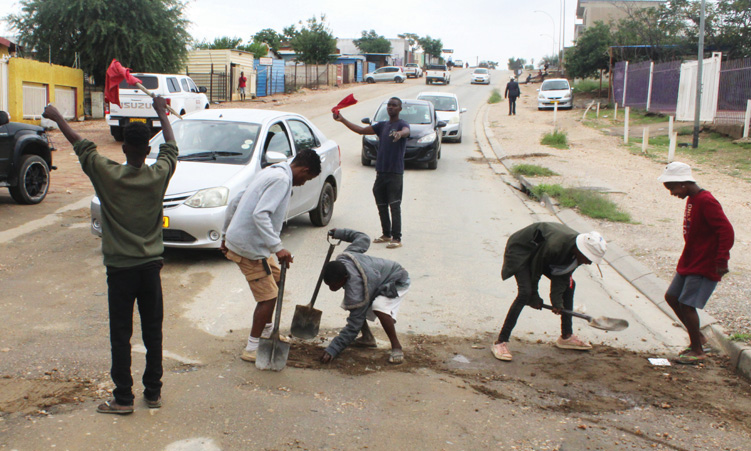MOSQUITO-SPRAYING programmes will be set up in all malaria-infested regions in southern Africa to mark SADC Malaria Day today.
The theme of this year’s Malaria Day is ‘Leadership and partnership in malaria vector control for economic development’. As the month of November coincides with the start of the rainy season, which brings mosquitoes and therefore a high risk of being infected with malaria, the Ministry of Health and Social Service is appealing to people to protect themselves against this killer disease.Preventive measures include spraying pesticides in all houses in malaria areas, sleeping under pesticide-impregnated mosquito nets, taking anti-malaria tablets when visiting these areas, and seeking immediate medical treatment when symptoms of malaria are experienced.Climatic variation in the region causes annual cyclical periods of low rainfall or drought, which alternate with heavy rains and floods causing sudden changes in malaria transmission.Droughts are often accompanied by malnutrition, which puts especially children and pregnant women at high risk of contracting malaria.The Ministry of Health has ensured that staff at all State clinics and hospitals in Namibia are trained and equipped to deal with malaria cases.It also distributes mosquito nets to pregnant women, children and immuno-compromised people in affected areas.As the month of November coincides with the start of the rainy season, which brings mosquitoes and therefore a high risk of being infected with malaria, the Ministry of Health and Social Service is appealing to people to protect themselves against this killer disease.Preventive measures include spraying pesticides in all houses in malaria areas, sleeping under pesticide-impregnated mosquito nets, taking anti-malaria tablets when visiting these areas, and seeking immediate medical treatment when symptoms of malaria are experienced.Climatic variation in the region causes annual cyclical periods of low rainfall or drought, which alternate with heavy rains and floods causing sudden changes in malaria transmission.Droughts are often accompanied by malnutrition, which puts especially children and pregnant women at high risk of contracting malaria.The Ministry of Health has ensured that staff at all State clinics and hospitals in Namibia are trained and equipped to deal with malaria cases.It also distributes mosquito nets to pregnant women, children and immuno-compromised people in affected areas.
Stay informed with The Namibian – your source for credible journalism. Get in-depth reporting and opinions for
only N$85 a month. Invest in journalism, invest in democracy –
Subscribe Now!










